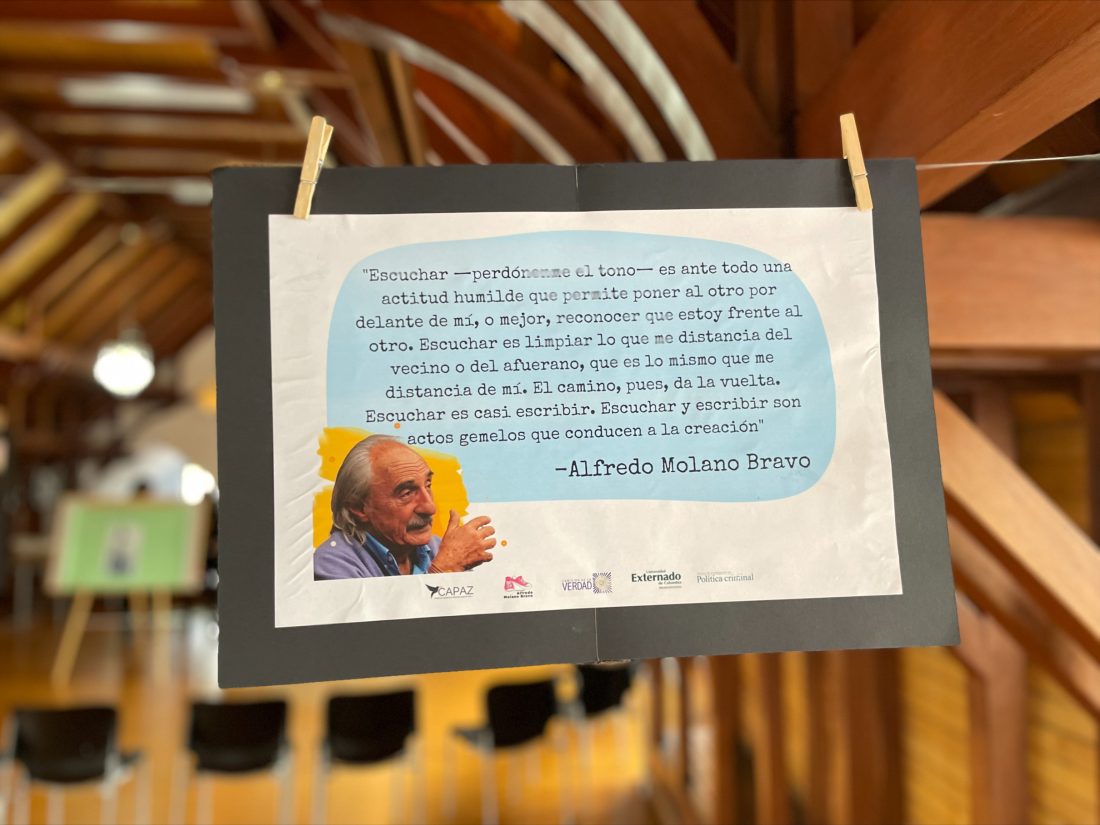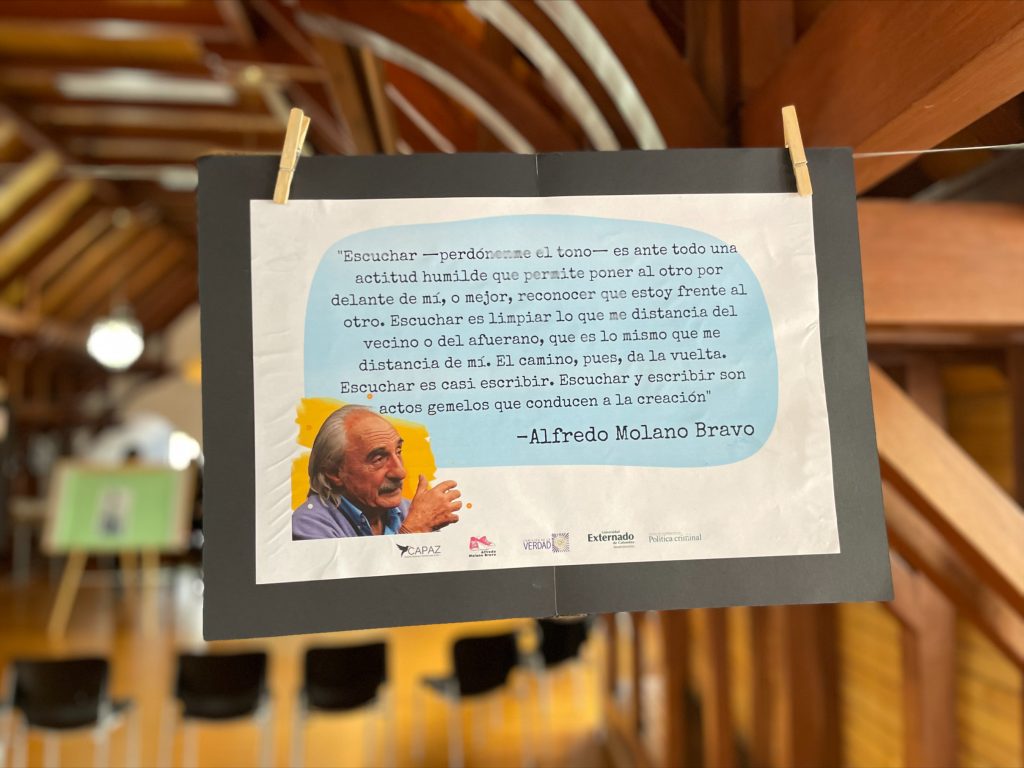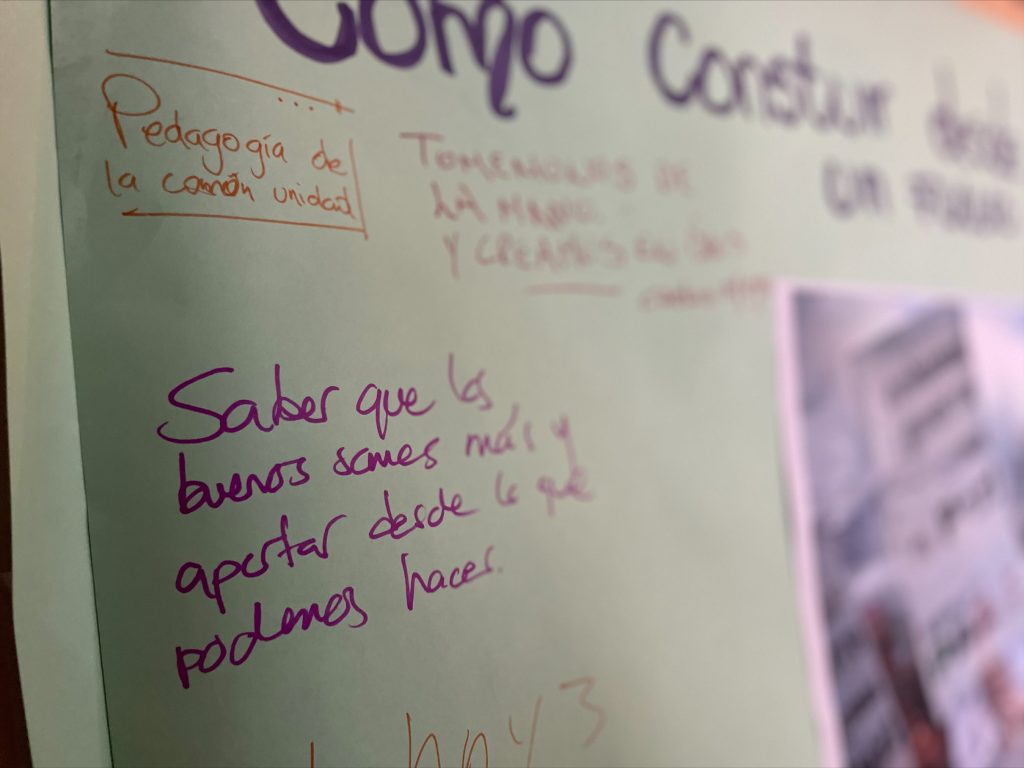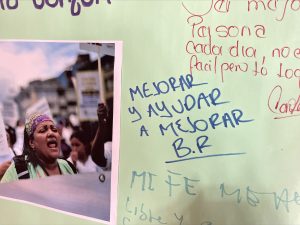
“Dialogues: truth, geography and listening on the road to transformation as a reparatory and restorative measure” – CAPAZ 2022 Winter School
 Universidad Externado de Colombia ran 9 training workshops for active participation during the months of October and November, as part of the proposal “Dialogues: Truth, geography and listening on the road to transformation as a reparatory and restorative measure”, winner of the “Alfredo Molano Bravo Chair Training Activities” call for proposals. The activity was part of the CAPAZ 2022 Winter School.
Universidad Externado de Colombia ran 9 training workshops for active participation during the months of October and November, as part of the proposal “Dialogues: Truth, geography and listening on the road to transformation as a reparatory and restorative measure”, winner of the “Alfredo Molano Bravo Chair Training Activities” call for proposals. The activity was part of the CAPAZ 2022 Winter School.

These workshops were profoundly sensitising and transforming spaces. We were able to generate spaces for dialogue and reflection with diverse voices with a broad territorial scope (Bogotá, Huila and Amazonas) and social scope that allowed us to maintain and develop two legacies: the legacy of the life and work of Alfredo Molano Bravo and the legacy of the Truth Commission. Participants also had the opportunity to share dignifying spaces, recognising themselves as agents of change in order to strengthen their capacities and give a prominent place to their struggles and their memory as key tools in the country’s transformation. Approximately 300 people participated, including:
- Indigenous population in detention at La Modelo prison (Bogota).
- University student community at Universidad Externado de Colombia (Bogotá).
- Children and adolescents at the Jorge Soto del Corral Public School (Bogota).
- Post-penitentiary population at Casa Libertad (Bogota).
- Peasant community of San Andrés de Tello (Huila).
- Indigenous peoples of Puerto Esperanza and Puerto Nariño (Amazonas).
 The workshops were organised with the support of local managers in the territory, who helped to build trust with the community prior to the workshops, facilitated logistics and collaborated effectively throughout the duration of the workshops. Based on building memory around truth, in some workshops, it was possible to create a sense of community, cohesion, and strengthening of the leadership of the community as agents of peace. The different populations were able to reflect on the truth, the impacts of the armed conflict in the territories, and in the different communities of our country. At the same time, they also reflected on the role of each one in peacebuilding and in the country’s vision of the future.
The workshops were organised with the support of local managers in the territory, who helped to build trust with the community prior to the workshops, facilitated logistics and collaborated effectively throughout the duration of the workshops. Based on building memory around truth, in some workshops, it was possible to create a sense of community, cohesion, and strengthening of the leadership of the community as agents of peace. The different populations were able to reflect on the truth, the impacts of the armed conflict in the territories, and in the different communities of our country. At the same time, they also reflected on the role of each one in peacebuilding and in the country’s vision of the future.
Take a look at the final product: “Interactive Cartography”, which gathers the experiences collected in each of the 9 workshops run within the framework of the training proposal. The product includes the field notebook that was used in the workshops, videos, photos and audios designed to present an excerpt of the activities carried out and become memories of the road traveled.



